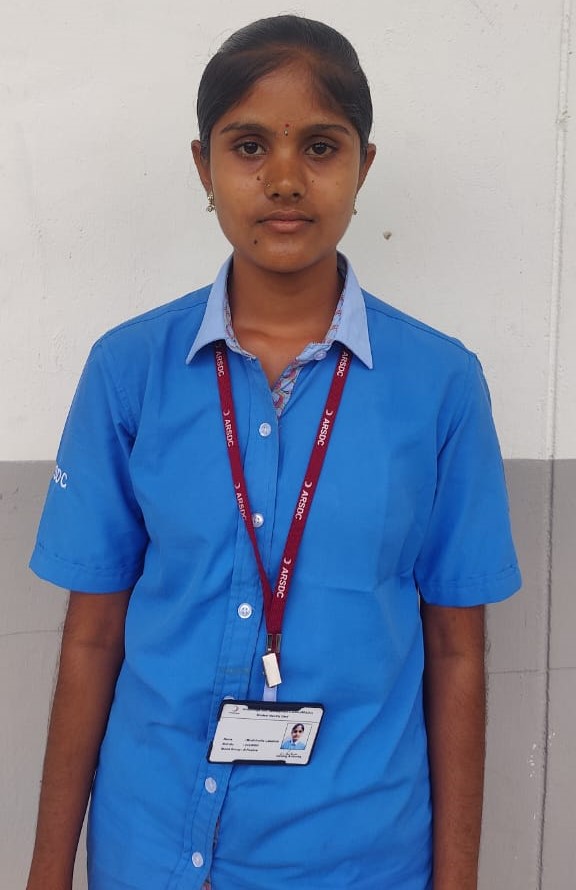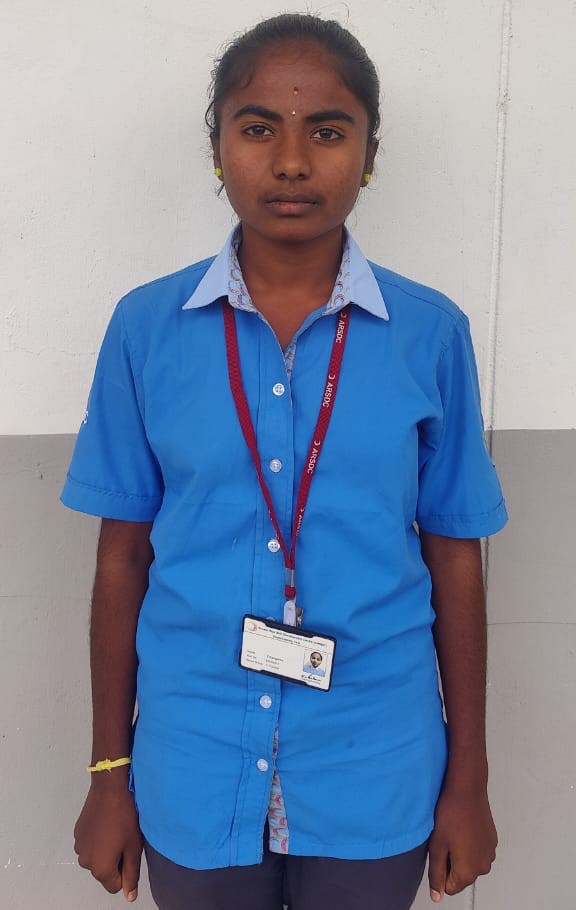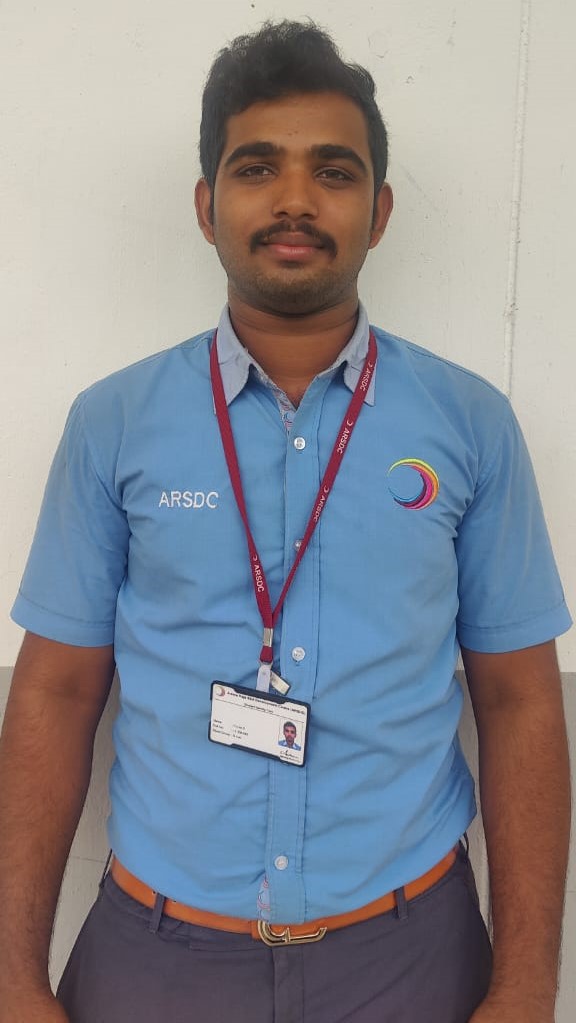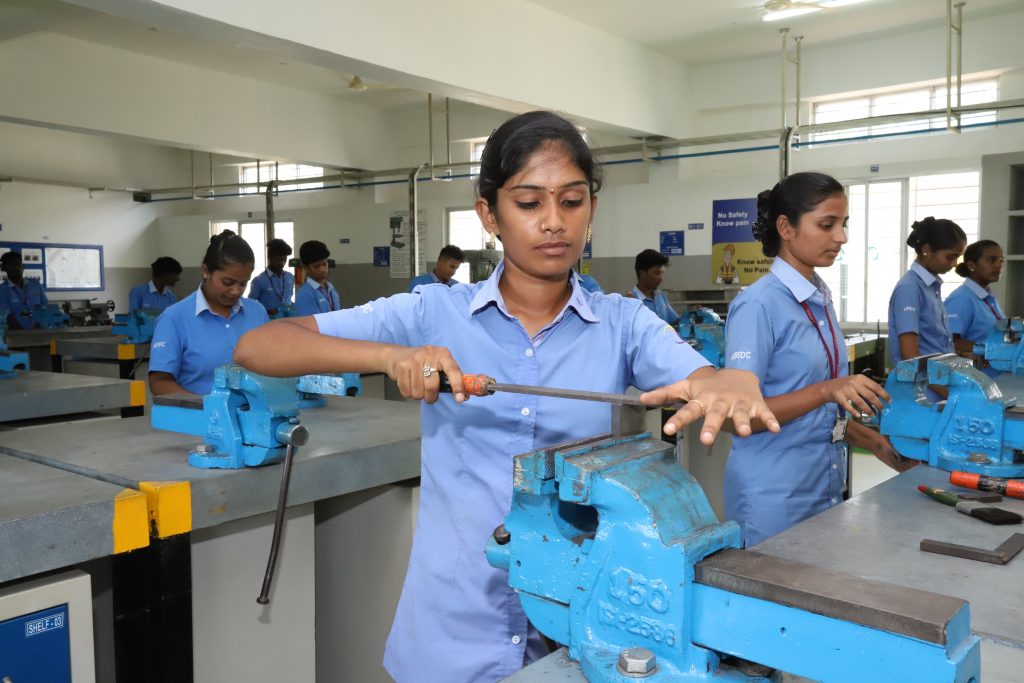
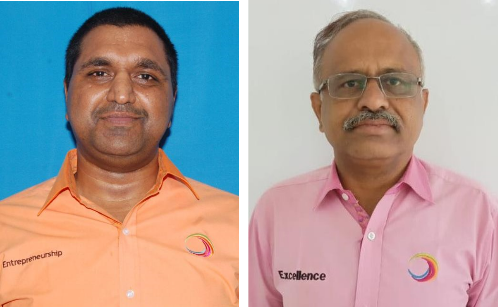
Soon, about half of India’s population will be under 28 years old, making it the youngest nation. This poses both opportunities and challenges – opportunities of having a formally skilled, productive population and the challenges of channelising and utilising the competency of these young citizens. A young population can steer the economy towards growth only if provided with the proper foundation of education, skilling, and training. An unskilled or under-skilled youth poses a hindrance to the development of the economy. As per reports, only 2.3 per cent of India’s workforce is currently formally trained, comparably lesser than other developed economies. This shortage is more prevalent in rural than in urban areas. As per 2017-18 statistics, about 93.7 per cent of youth in rural India have not received any vocational training. The WEF also stated that only 25 per cent of Indian professionals are employment worthy in the organised sector.
Rural Workforce
The rural economy is the country’s backbone as almost three-fourths of its population resides in villages. Yet, employment opportunities in this region are confined to agriculture and its allied sector. While it is true that agriculture is the mainstay in these areas, over the last few years, many industrial and manufacturing companies are venturing into these areas due to the various economic and sustainable employment benefits they offer.
However, the biggest hindrance faced by these companies is the availability of skilled workforce – technical and non-technical. A skilled rural workforce will contribute immensely to the local economy, encourage reverse migration and develop a non-migratory workforce locally. As part of its Skill India Mission, the Government of India has devised many such schemes and programmes to address the skill gap, but private players must also take equal responsibility to make a dual impact. This will be a win-win situation for sustainable business models that believe in training an industry-ready skilled workforce and providing livelihood in rural areas.
With seven companies encompassing 16 businesses, we are constantly looking for a skilled workforce. Our units are spread across different villages in the Chittoor district. We are keen on providing non-migratory job opportunities to the local youth. We are also aware that there is a skill gap across industries and a visible mismatch between the requirements and availability of the talent pool. There is a dire need for initiatives to create and polish the required skill set of the youth. This would provide people with employment opportunities and help industries and society at large.
Amara Raja Group’s CSR Commitment
Our core purpose at the Amara Raja Group is to transform and improve the quality of life by building institutions that provide better access to better opportunities. Since our inception in 1984, we have been delivering high social impact in all our businesses and communities around us.
“To be an entrepreneur is to be a social worker,” believes Amara Raja’s Founder-Chairman, Dr Ramachandra Galla, who moved back to his roots in Chittoor from the United States to make his vision a reality.
We started social development and contributions much before CSR contributions were mandated for organisations in India. We set up Rajanna Trust, a registered NGO, to channel our contributions towards social responsibility in the fields of Education, Skills Development, Health, Environment Resource Management, Food and Agriculture, Employment, Women’s Development & Empowerment, and more.
Skilling Rural India via ARSDC
With seven companies encompassing 16 businesses, we are constantly looking for a skilled workforce. Our units are spread across different villages in the Chittoor district. We are keen on providing non-migratory job opportunities to the local youth. We are also aware that there is a skill gap across industries and a visible mismatch between the requirements and availability of the talent pool. There is a dire need for initiatives to create and polish the required skill set of the youth. This would provide people with employment opportunities and help industries and society at large.
Keeping all of this in mind, we set up the Amara Raja Skill Development Centre (ARSDC), under the aegis of Rajanna Trust, in 2014 in Petamitta, Andhra Pradesh, to focus on skilling rural India.
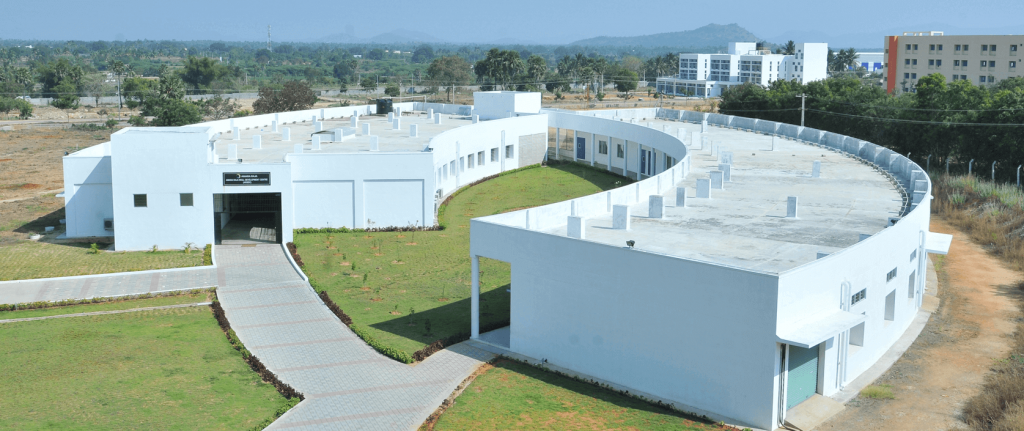 The Centre’s core objective is to provide systematic technical and non-technical training to people from rural India and help them acquire life and job skills. The second objective is to minimise the talent gap in society by providing training per the ever-changing business/work environment in industrial and allied sectors.
The Centre’s core objective is to provide systematic technical and non-technical training to people from rural India and help them acquire life and job skills. The second objective is to minimise the talent gap in society by providing training per the ever-changing business/work environment in industrial and allied sectors.
Multi-Skill Technician Course
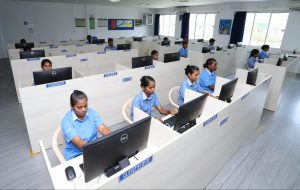 At ARSDC, we offer a Government-approved course under the National Apprenticeship Promotion Scheme (NAPS) and provide certificates in Welding Operator cum Multi Skill Technician. The course equips rural youth with multi-skills and follows a practical-oriented training methodology with 70 per cent practical learning and 30 per cent theory-based
At ARSDC, we offer a Government-approved course under the National Apprenticeship Promotion Scheme (NAPS) and provide certificates in Welding Operator cum Multi Skill Technician. The course equips rural youth with multi-skills and follows a practical-oriented training methodology with 70 per cent practical learning and 30 per cent theory-based 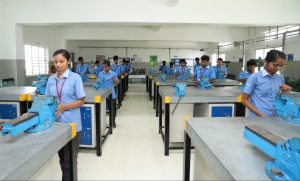 learning.
learning.
We developed the entire curriculum with inputs from the industry and the Electronics Sector Skills Council of India (ESSCI) to bridge the skill gap. The curriculum focuses on skill development, personality development, and enhancing 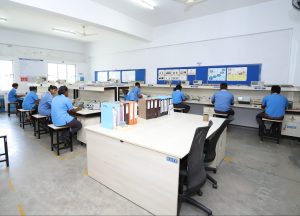 employability.
employability.
The Centre has state-of-the-art facilities – a computer lab, fitting shop, library, drawing hall, electronics lab, electrical lab, machine shop, electrical wiring lab, welding lab, PLC lab, and advanced pneumatic lab. We provide trainees with free education throughout the course. They also receive a 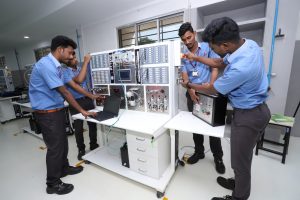 stipend during their On-the-Job Training (OJT).
stipend during their On-the-Job Training (OJT).
The duration of the course is 24 months, consisting of three months of residential in the ARSDC campus and the remaining 21 months of On-the-Job Training (OJT) in the different AR Group Companies with a 5+1 pattern – a dual 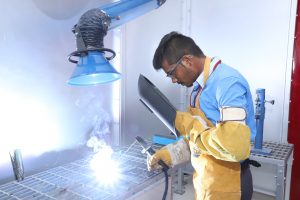 system of training where trainees come to ARSDC for continuous assessment, once a week.
system of training where trainees come to ARSDC for continuous assessment, once a week.
The first three months include food and accommodation, safety shoes, uniforms, and study materials. We then provide subsidised food and accommodation for the next 21 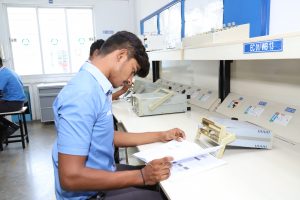 months, subject to availability. Students undergo special training in the industry during the second phase (nine months). In the third phase (12 months), they learn skills from the industry, increase their capability of working on machines and enhance their skills in analysing every process.
months, subject to availability. Students undergo special training in the industry during the second phase (nine months). In the third phase (12 months), they learn skills from the industry, increase their capability of working on machines and enhance their skills in analysing every process.
During the On-the-Job Training (OJT) period, the students can work on two specialised subjects. They get a stipend and are provided free uniforms, safety shoes, food, accommodation, and transportation facility at a concessional rate. They also get an opportunity to learn additional skills and be tutored by industry specialists. While students undergo OJT, our ARSDC and Shop Floor Supervisory Staff assess their discipline, attitude, learning ability, and performance at their respective workplaces regarding our initiatives. Every month, HR executives send their feedback after assessing the performance of the students in the industry.
|
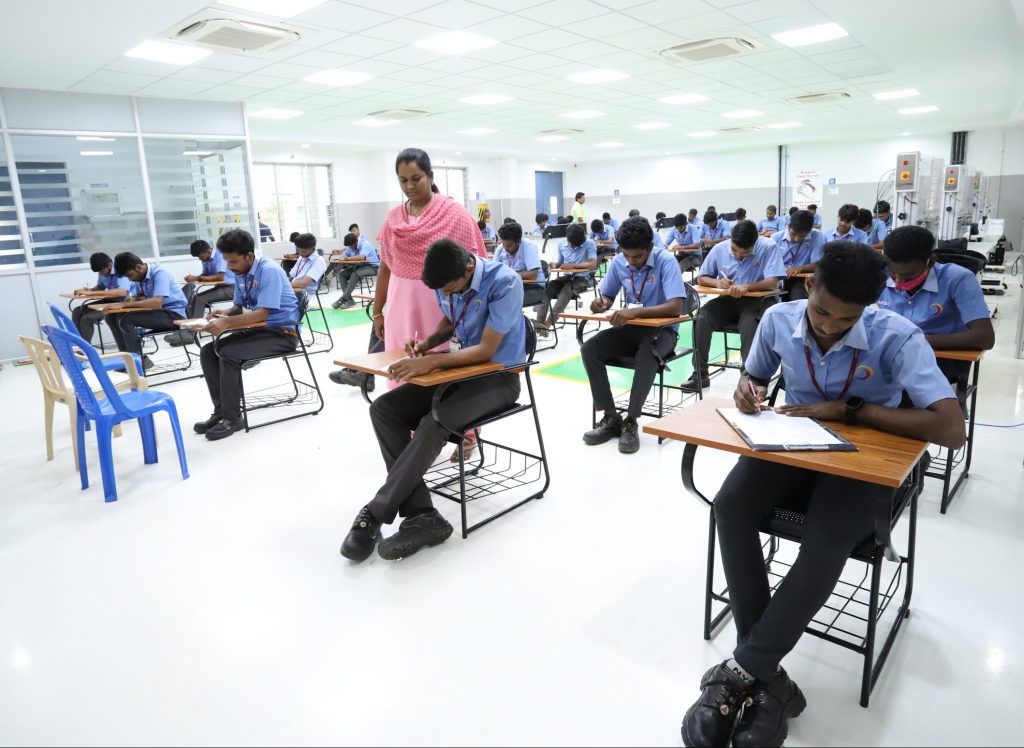
Admission intake is done every month. Candidates are selected based on basic knowledge, the right attitude, aptitude, and physical fitness. As automation changes the way industries work, our training programmes provide training across different skill sets. This makes the students job-ready and fits for any department, industry, or field of work. The minimum and maximum age to apply for the course is 16 years and 25 years, respectively. The minimum qualification is 10th pass/fail or, Inter pass/fail.
On-the-Job Training
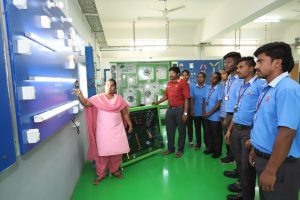 During the On-the-Job Training (OJT) period, the students can work on two specialised subjects. They get a stipend and are provided free uniforms, safety shoes, food, accommodation, and transportation facility at a concessional rate. They also get an opportunity to learn additional skills and be tutored by industry specialists.
During the On-the-Job Training (OJT) period, the students can work on two specialised subjects. They get a stipend and are provided free uniforms, safety shoes, food, accommodation, and transportation facility at a concessional rate. They also get an opportunity to learn additional skills and be tutored by industry specialists.
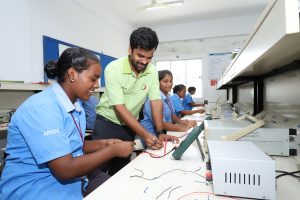 While students undergo OJT, our ARSDC and Shop Floor Supervisory Staff assess their discipline, attitude, learning ability, and performance at their respective workplaces regarding our initiatives. Every month, HR executives send their feedback after assessing the performance of the students in the industry.
While students undergo OJT, our ARSDC and Shop Floor Supervisory Staff assess their discipline, attitude, learning ability, and performance at their respective workplaces regarding our initiatives. Every month, HR executives send their feedback after assessing the performance of the students in the industry.
|
Outreach Programmes
We use different outreach programmes to recruit trainees, including reaching out to various government schools and social welfare residential schools, NGOs, and media awareness. Our employees conduct sensitisation programmes in villages in Rayalaseema district and surrounding areas about the various benefits our Centre offers. We also tie up with various NGOs working in the education space who regularly visit our Centre. They then disseminate information about ARSDC among the student community.
Most trainees are from the two Telugu-speaking States – Andhra Pradesh and Telangana. The medium of instruction is in English and Telugu. We also get a few students from Karnataka, Odisha, and others.
The Amara Raja Skill Development Centre has seen huge success and impacted the lives of many young people and their families. The economic status of many trainees has moved up, and in some cases, from ultra-poor to decent living. A few trainees are employed in Dubai, UAE, etc., apart from pursuing further education. There are numerous enquiries and traction regarding our course, making it a challenge to accommodate everyone. To address the growing needs of the rural youth and contribute further to the skilling initiative, we are all set to open another skill development centre in a year or two. SDC-2 will provide training for specific trades like construction, Mechanical, Electrical, Plumbing (MEP), and electronics.
Facilities and Co-Curricular Activities
Our skill development centre also houses a hygienic, safe and world-class hostel a, and dining facility. There are separate hostels for girls and boys that can accommodate around 800 students at a time. The girls’ hostel can accommodate 240 members, while the boys’ hostel houses 540 members. The dining area maintains the highest standards of cleanliness and hygiene and provides nutritious and well-balanced meals to the students.
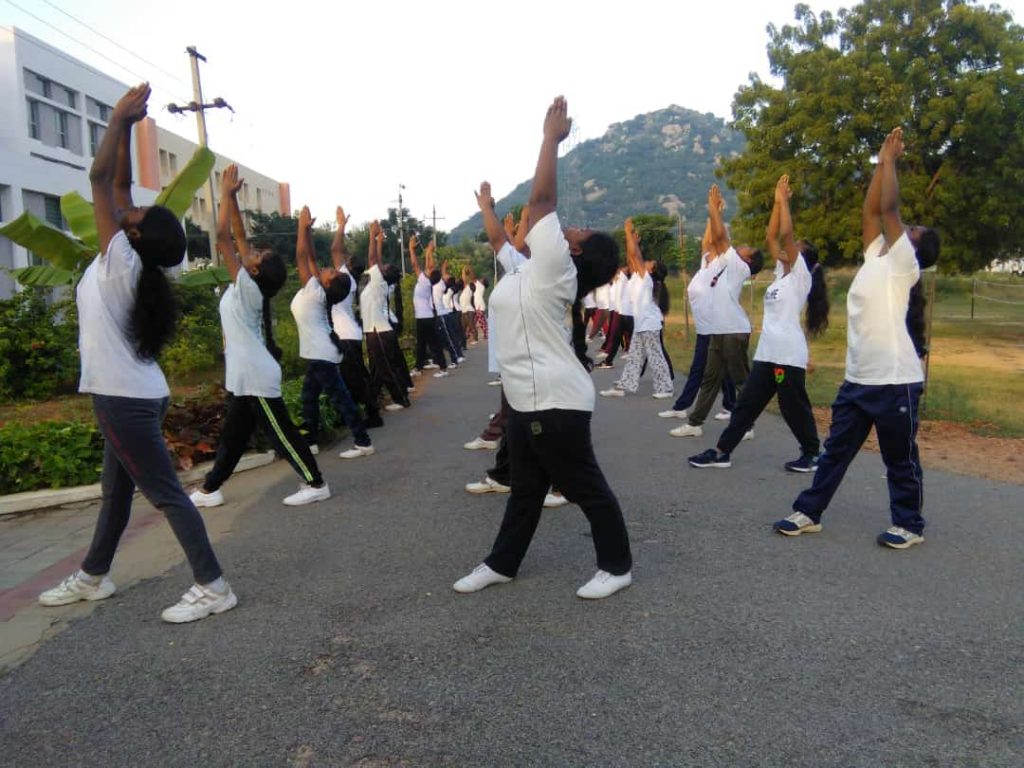
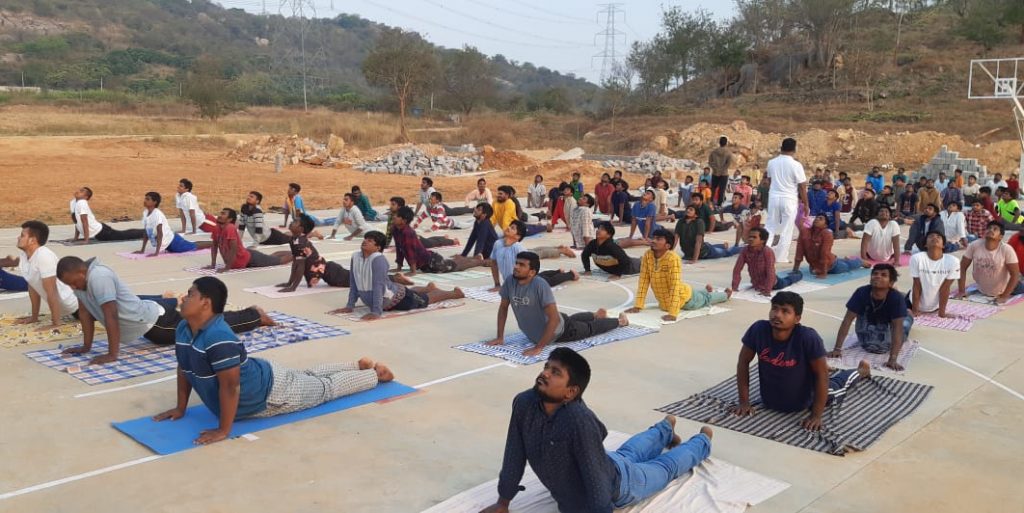
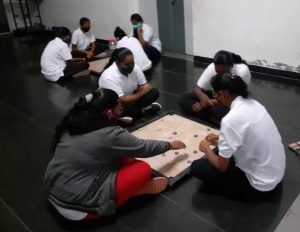
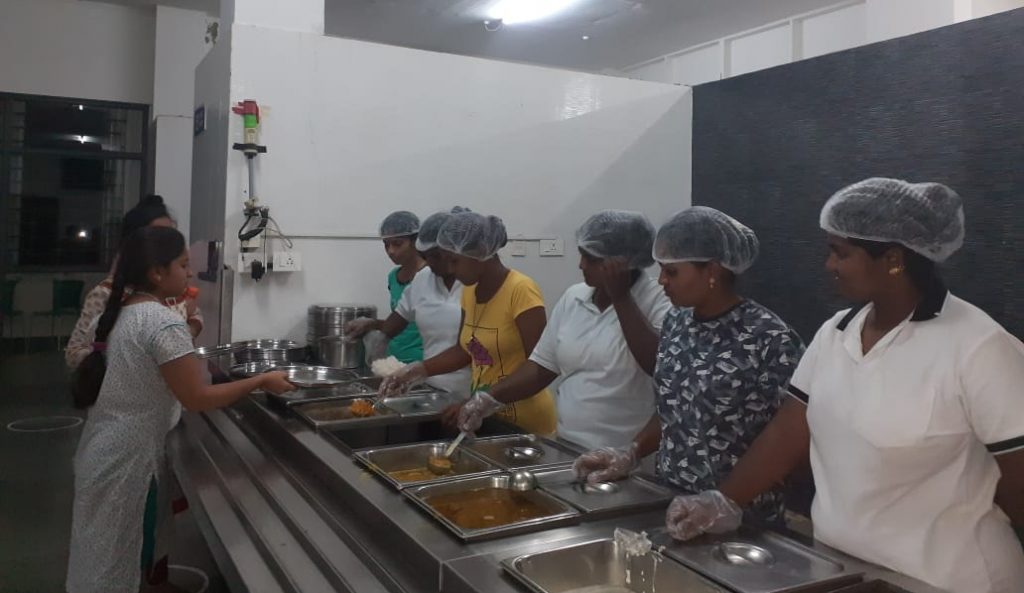
We believe that a sound body is vital for a sound mind. This is why we focus extensively on extra-curricular activities for our students. We make them practice discipline and be conscious of safety protocols from day one of their training programme. In addition, we highly emphasise sports, games, and other activities for physical fitness and holistic development and activities like music and cultural programmes.
|
Employment Opportunities
In the past few years, we have offered 100 per cent employment in our AR Group companies to those who completed the course. On average, we see about 70 per cent of trainees join our Group companies on a need-basis while the remaining take up opportunities in other industries closer to their villages or some set up their enterprises.
Our Centre also encourages trainees to work on live projects to stimulate creative thinking and independence.
Future Plans
The Amara Raja Skill Development Centre has seen huge success and impacted the lives of many young people and their families. The economic status of many trainees has moved up, and in some cases, from ultra-poor to decent living. A few trainees are employed in Dubai, UAE, etc., apart from pursuing further education.
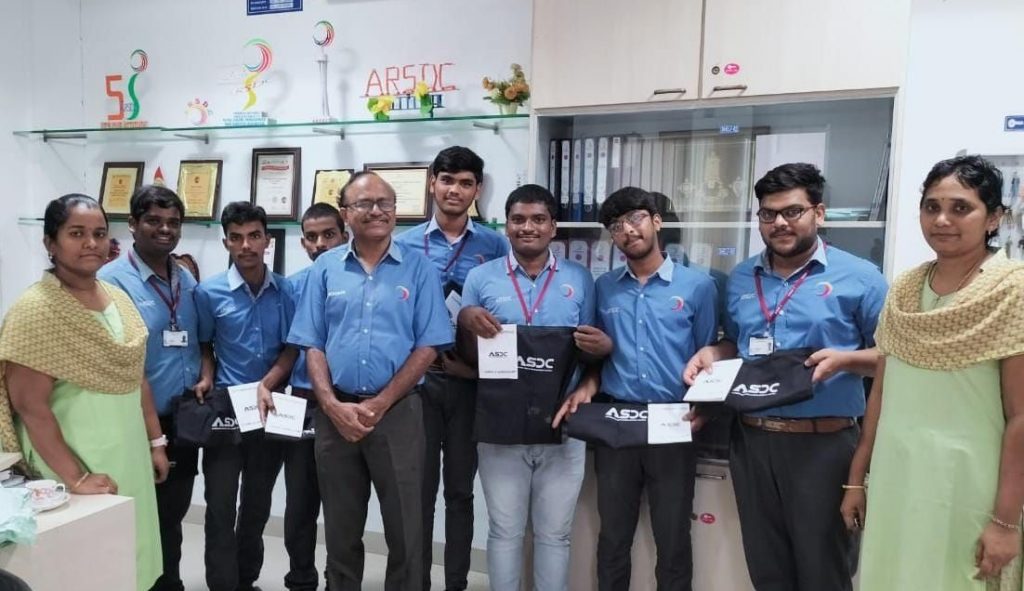
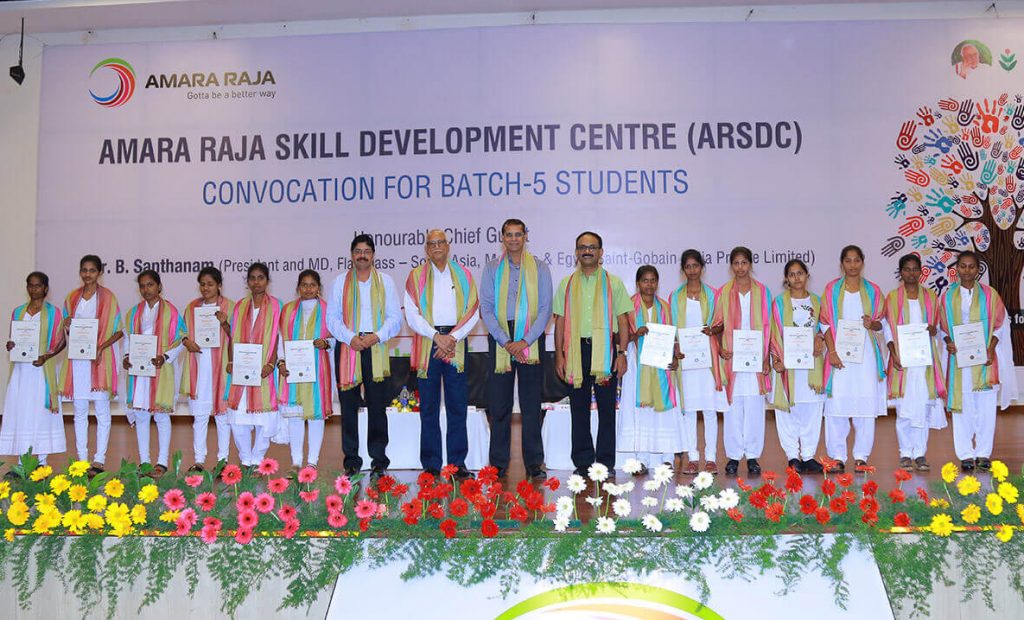
There are numerous enquiries and traction regarding our course, making it a challenge to accommodate everyone. To address the growing needs of the rural youth and contribute further to the skilling initiative, we are all set to open another skill development centre in a year or two. Construction work for the same is already in progress. SDC-2 will provide training for specific trades like construction, Mechanical, Electrical, Plumbing (MEP), and electronics.
As a growing conglomerate always on the lookout for skilled workers, we also train our students in the latest technologies and prepare them for future advances in the field.


